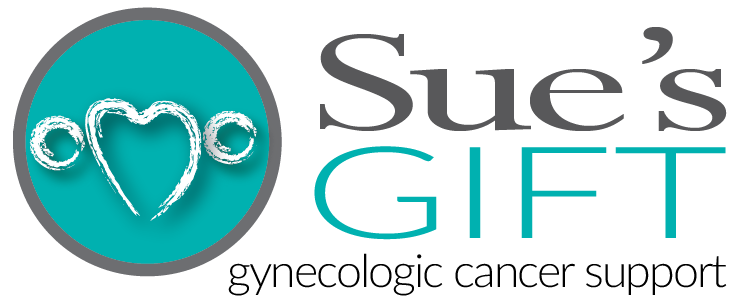
Sue’s Gift Blog
Supportive articles for the newly diagnosed, those currently in treatment, survivors, caregivers, and loved ones. Written by our Patient Services Director, Sherry Martin, a licensed clinical social worker with over 35 years of experience in the field of oncology social work.
Interactive Posts
Grateful
I didn’t know there was a difference between being thankful and being grateful, but evidently there is. Being thankful is contingent upon something that occurred – a situation or another’s action, a gift, or kindness. Being grateful is an attitude or way of life, focusing on what is good instead of what is missing. In other words, being thankful is a response while being grateful is a choice.
Doing The Best You Can
had an experience recently where I was physically unable to keep up with those I was with. I’ve never been in that situation before. I was caught off guard and felt I’d let others down – maybe even to the point of being a burden. It didn’t feel good.
Find Your Ikigai
The Japanese concept of Ikigai (pronounced ee key guy) translates to a “reason for being,” or “reason to get up in the morning,” and is comparable to the likely more familiar French term raison d’etre. The literal translation of Ikigai is the “happiness of being busy.”
The Loss I Know
I know I can't call her for the recipe. I started to. I know I can't call to tell her the cutest thing my daughter just did. I know there's no need to set an extra plate for dinner. I know he's not here to teach my husband his woodworking skills, and I hate all of that. I know. Yet, my heart tells me to call, to talk, to share, to learn.
The Changing Seasons
I always liked asking participants in the support groups I led, “What is your favorite season of the year?” or “What was your favorite age?” You learn a lot about people with those questions. Most everyone had a preferred season, and some had a preferred age, stating, for example, they “loved being in their 30’s, when the kids were little.” Others said they enjoyed all the seasons and liked their current age.
The Bridge
How many of us have needed a bridge to cross difficult terrain or deep water to get to safer ground, whether literally or figuratively?
Even now, thinking about crossing the Royal Gorge Bridge many years ago triggers a sick feeling in the pit of my stomach. I can still see my fingernails digging into the car’s dashboard and feel my heart pounding as I realized we were only halfway across what seemed like a mile-long span. The bridge was strong but so was my extraordinary fear of heights.
Being Good Enough
I’ve found it interesting that several patients over the years have shared with me that they worked hard to be” a good patient.” When asked what they meant by that, their responses ranged from, “I’m going to do everything the doctor says,” to “I won’t let them know I’m really frustrated by the long wait times to be seen or that the doctor is always in such a hurry.” Each of them felt they weren’t being “a good patient” if they appeared frustrated or irritated, questioned the medical staff, or asked for a more convenient appointment time, because they didn’t want to be labeled by the staff as “difficult.” It was very important to each of them to be seen as a good patient, maybe even “the perfect patient.”
Mantras
The word mantra comes from Sanskrit meaning “sacred message.” It’s a short, positive statement or affirmation to say to yourself each day to remind yourself of your strength and resilience. Mantras are personal. Your mantra may not be meaningful to me, and my mantra may be useless to you, so finding a mantra or mantras that resonate with you is the key to their effectiveness and power. Plus, it’s important to have a variety of mantras for different situations, like coping with anxiety, depression, fear, or self-esteem issues.
Make A Plan
Why is self-care so hard and what keeps one from implementing self-care measures? I believe there are several reasons. Many of us were taught early on that it’s better to give than receive. So, we’ve spent years giving – sometimes to the point of exhaustion and depletion.
About The Author
Sherry Martin, LCSW has served as Patient Services Director at Sue's Gift for the past seven years. A licensed clinical social worker with over 35 years of experience in oncology care, she brings deep expertise and compassion to patients, survivors, and their loved ones.
She is also the author of Beginning Again: Tools for the Journey through Grief a step-by-step guide for grief support group facilitators. Based on a proven model with low attrition rates and overwhelmingly positive participant feedback, the book provides practical tools for those feeling stuck in grief or seeking guidance in their healing journey.
Throughout her career, Sherry has specialized in medical and oncology social work, with experience spanning in-patient hospitals, outpatient cancer centers, hospice, skilled nursing facilities, case management, counseling, program development, educational workshops, and group facilitation. Her work is dedicated to supporting individuals and families through the challenges of cancer, grief, and loss, helping them find resilience, connection, and hope.










